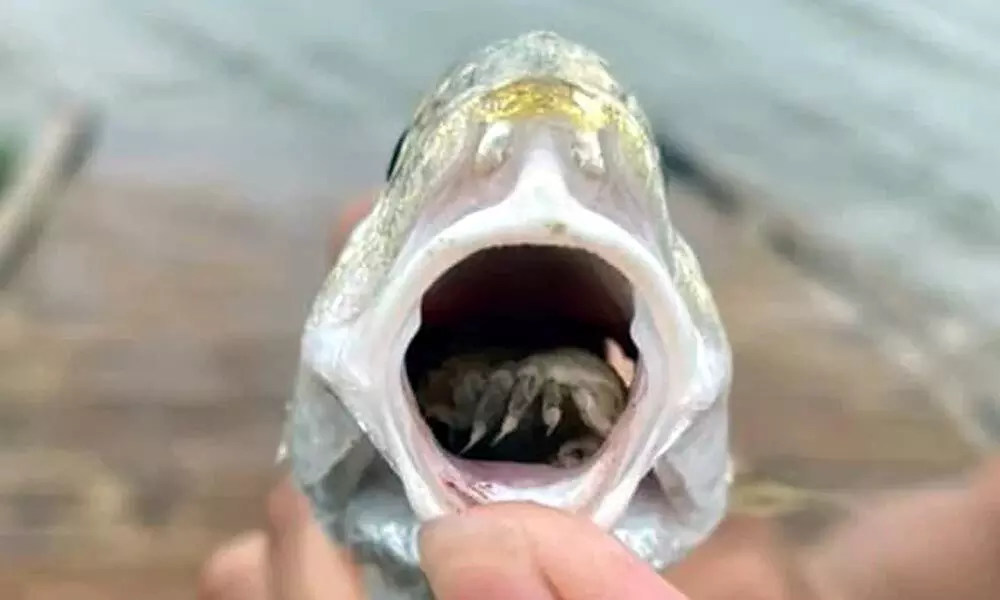Terrifying Parasite Disguising As A Fish Tongue Was Discovered

The parasitic isopod. (Galveston Island State Park, Texas Parks and Wildlife/Facebook)
- A fish bearing a surprise was discovered by an unsuspecting worker at Galveston Island State Park on Texas' western Gulf Coast.
- The tongue should have been in the Atlantic croaker's gaping mouth, there were simply too many legs for any mouth, or fish.
A fish bearing a surprise was discovered by an unsuspecting worker at Galveston Island State Park on Texas' western Gulf Coast. Where the tongue should have been in the Atlantic croaker's gaping mouth, there were simply too many legs for any mouth, or fish. These legs also come with eyes.
The croaker's tongue had been replaced by an isopod from the species Cymothoa. Females of this crustacean group move up the gills of the fish, pinching and syphoning off the blood supply to the tongue until it withers and comes off. They then attach themselves to the residual fleshy stub and feast for years on the blood of their prisoner.
The park officials wrote on their Facebook page that it happens to be the only known situation where a parasite functionally replaces a host's organ.
These parasites are abundant in some fish species, such as the spotted seatrout, according to Mark Fisher, research director at Texas Parks and Wildlife.
While he'd never seen one in an Atlantic croaker (Micropogonias undulatus), a 2015 study confirmed the isopods to be a favourite of this species.
While the parasite, which may grow to be 8 mm long (0.3 inches), does not appear to modify the feeding patterns of any of the fish it infects, it does cause them to grow slower, according to a 2013 study. Due to the huge parasite plugging the mouth prevents the fish from taking up and filtering as much oxygen from the water, the researchers believe this is due to respiratory stress caused by receiving less oxygen over time. Others ascribe the decrease to the parasite's nutritional depletion.
The C. borbonica species infecting the Trachinotus botla fish was the focus of these findings. Although C. excisa is thought to have high host specificity for this fish, we don't know which species has infested the mouth of the Atlantic croaker.
Next Story










